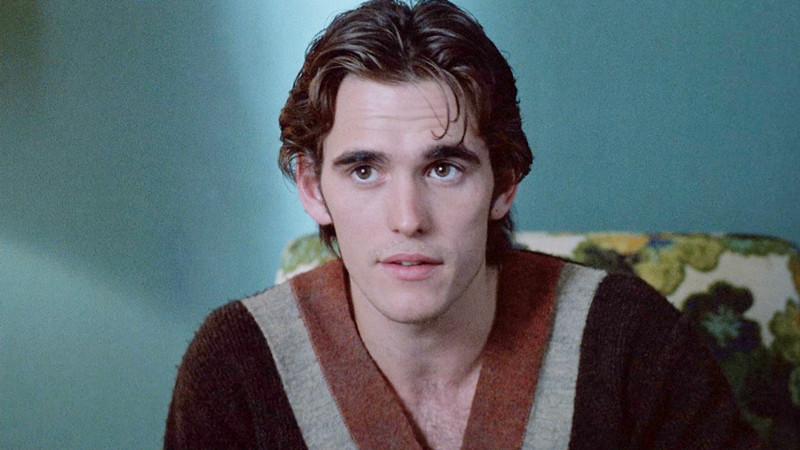
While American cinema of the 1970s, often dubbed the era of the New Hollywood boom, was largely character-based, reflecting the lives of the people who were queuing up outside the theatres, the 1980s were undoubtedly the time of the blockbuster, of escapism, the age in which big budget action flicks, dazzling sci-fi epics and feel-good adventure was the order of the day. As budgets got bigger and movies became more and more geared towards the whole family, many of the auteurs and directors who made their names in the previous decade with smaller, more intimate, much grittier films found themselves starting from the ground up as the 80s came into full swing.
Most film buffs are open to all kinds of cinema, and though the 1980s was indeed dominated by the blockbusters, there were plenty of less commercial pictures which saw release too. Though few of them could rival the extravaganzas that ruled the box office in terms of profits, there were dozens, if not hundreds of films which were just as effective. Sadly, many of them went under the radar and have since got lost in the corridors of time.
Below are ten 80s films I feel are unjustly overlooked, some of which were minor successes at the time and have fallen by the wayside, others which never got their due credit in the first place.
1. A Dry White Season (1989)
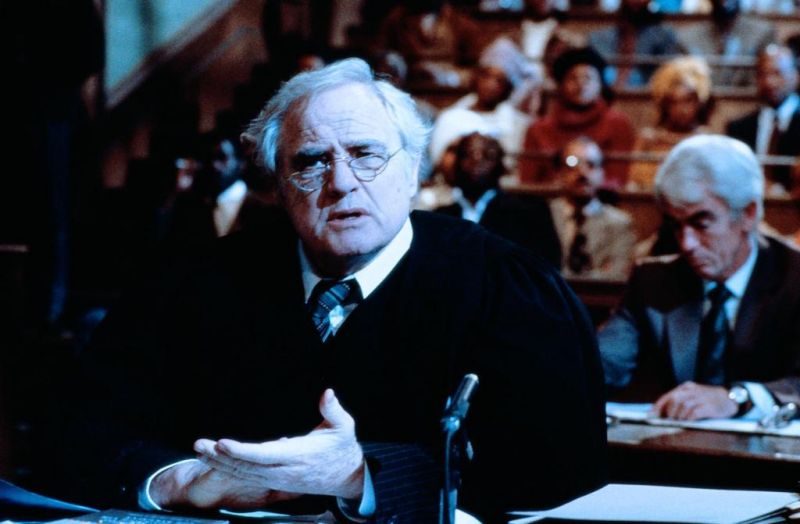
Donald Sutherland was on Oscar worthy form in the overlooked and extremely moving Apartheid drama, A Dry White Season (1989). Written and directed by Euzhan Palcy, the film is based on Andre Brink’s book and set in mid-seventies South Africa. Sutherland plays Ben du Tolt, a kind-hearted teacher who works at a whites-only school. When his gardener’s son is beaten by white police, Ben is asked to step in. At first he refuses, but when the gardener himself is abducted by the police, Ben gets involved in the case. Once he knows both men were killed, he brings the incidents to the court, with lawyer Ian McKenzie (Marlon Brando) representing him. But Ben is up against a most intimidating foe, and his quest for truth and justice leads him into dark waters.
A Dry White Season is a highly effective, unflinching, eye-opening, and often upsetting film about a sickening regime, the concept of equality, and the basic right to be treated like a human being. Directed with grace by Palcy, it is a story that needed to be told – and it is one told extremely well. Sutherland puts in a fabulous effort, playing a man we genuinely like, care for, and admire. Ben is the personification of justice itself in a time and place that seemed to be without law and decency, and Sutherland embodies this decent and all too idealistic man perfectly.
When the movie came out in 1989, much fuss was made about Brando, the man who famously hated the movie business, signing up for the role of the lawyer. He was so taken by Palcy’s passion and the story she was dying to tell that he worked for scale. The hype of Brando’s appearance in the picture aside though, A Dry White Season is in some ways held up by Sutherland’s work. Yes, Donald’s scenes with Marlon Brando, though brief, are worth the price of admission alone, but in all the film is carried by a warm Sutherland tour de force that keeps the whole thing together.
A Dry White Season is an important film that rarely gets singled out when people list highlights of the 1980s. It’s well worth seeking out.
2. Ironweed (1987)
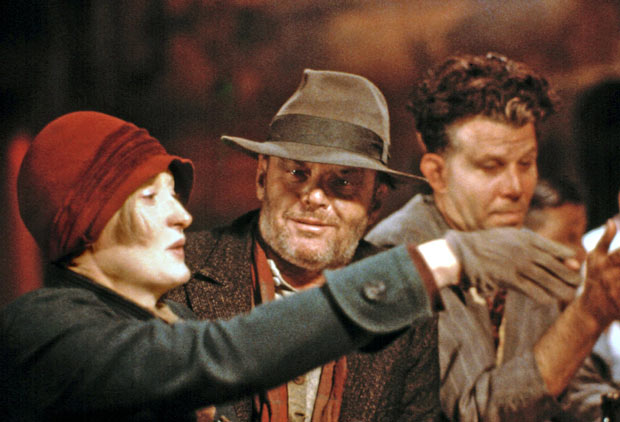
In Hector Babenco’s 1930s set drama, based on William Kennedy’s book (adapted by the author himself to the screen), Jack plays Francis, a down and out former baseball player who dropped his son as a baby and killed him. In the aftermath of the traumatic event, after walking out on his family, he has become a drinker, a bum, and a faded ghost of his former self. In Albany on Halloween night, he meets with Helen (Meryl Streep), and attempts to move on in his new life, trying to make things as best he can despite the pitfalls of his life style choice and the quality of his peerage. While working in odd jobs, he faces his past and heads back to the house to see his wife and two surviving children. But when an aggressive group attempt to run all the vagabonds out of town, things take a drastic turn.
Ironweed features a duo of superb performances by two of American cinema’s greatest stars. Nicholson is brilliant, embodying the down and out so well that he starts to dissolve into the character, fading away more and more as the picture goes on. We believe he is every bit the boozing hobo, yet there is a tragic undercurrent which makes you care for the man. Streep is a revelation too, perhaps among her finest performances to date; a believable, savage depiction of bitterness and a woman who has totally lost her way. Jack and Meryl work wonderfully together, and though there were few dramatic fireworks in the admittedly good and refreshingly low key Heartburn (their previous film together), here they are given much more room to flesh out their parts and impress the viewer.
Unfortunately, despite Academy attention, the film sank. While it received some good reviews, box office, predictably, was lowly. Coming in at a budget of $27 million, it scraped back a mere $7 million. Clearly this was not a film made to please the blockbuster brigade, but it does seem a shame that such a well written, moving, and superbly performed piece of filmmaking would be so neglected. Worse still, thirty years on, it’s not gained much of a following. Ironweed, then, deserves a dusting off.
3. The Ninth Configuration (1980)
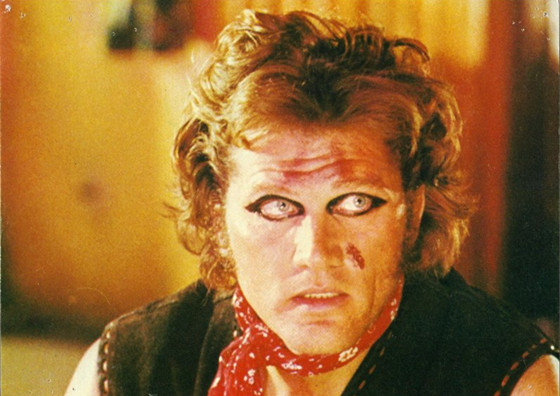
William Peter Blatty’s vastly underrated The Ninth Configuration is an electrifying experience, a film that lures you in with madcap comedy for its first half, and then delivers an unexpected sucker punch during its final chapters. The film takes place in a castle doubling as an asylum in the early 70s, near the end of the war in Vietnam, where a group of soldiers deemed insane are residing. Colonel Hudson Kane (Stacy Keach) is brought in to reside over the inmates.
A Vietnam veteran himself, it slowly becomes clear that he may be the infamous Killer Kane of ‘Nam legend, and that he could be just as crazy as half the inmates appear to be. Most of the time speaking in a flat tone, and acting very strangely indeed, he indulges the patients and encourages them in their wild eccentricities. One patient, Cutshaw (Scott Wilson), builds a rapport with Kane, and the two go into theological discussions about good and evil, about the existence of God, an almighty creator, against theories of evolution. When Cutshaw escapes from the castle one night, Kane follows him, and finds the emotionally fragile man being roughed around at a bar frequented by Hell’s Angels. It is here that Kane snaps into violence, reverting to his manic, demented former self of Vietnam legend.
The Ninth Configuration is a complex, multi-layered film, a study of faith, of the existence of god, of good and evil on the earth, of man’s inhumanity to his fellow man, blurring the line between so called sanity and madness, a deeply theological film in every sense. But importantly, it is also extremely entertaining and gripping, a ride into pure, unadulterated madness, a horror film without creatures, monsters and demons, but human beings, who are the most monstrous beings of all. Brilliantly written, excellently directed, and acted with perfection, The Ninth Configuration is as good as filmmaking gets – and then some.
4. Jacknife (1989)
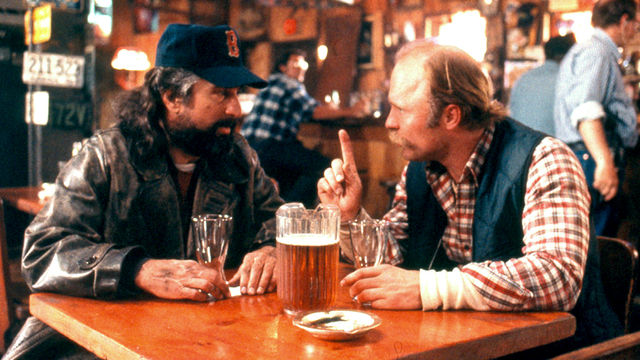
A solid but vastly sidelined Robert De Niro film of the 1980s was the moving drama Jacknife, which follows the lives of two Vietnam veterans, both affected by their time in the war in very different ways. It was almost like a distant cousin to The Deer Hunter, exploring the long term effects of war trauma. De Niro and Ed Harris give precise and finely tuned performances, both brilliantly capturing the pain, shame and torment of getting through a living nightmare such as the bloody mess of the Vietnam War.
De Niro is Megs, a troubled vet who tracks down old war buddy Dave (Ed Harris), who now has a drink problem, and aims to lift him from his depressed, drunken state. When a romance blossoms between Megs and Dave’s sister (a brilliant Kathy Baker), a combination of events brings Dave back to life, and forces him to face his inner demons and get on with his life.
Jacknife is superbly acted by De Niro and Harris, both of whom give terrific performances. Based on the play Strange Snow by Stephen Metcalfe, who also penned the screenplay, the film is compact and all about the performances, with little fuss, frills or distraction. It’s one of De Niro’s lesser known films from this time, perhaps due to its lower budget and muted release. That’s not to say it’s not brilliant, because it is; in fact it’s a lost gem, and De Niro’s Megs is one of his finest creations from the era. It’s well worth tracking down.
5. The Border (1982)

The Border is one of Jack Nicholson’s most forgotten films from the 1980s; in fact, it’s probably one of the least celebrated movies from his whole post-Easy Rider career. Directed by British great Tony Richardson, it stars Jack as immigration officer Charlie Smith, who with his wife moves to El Paso where he teams up with friend and border controller Harvey Keitel. The pair take part in a human smuggling scheme, and the new, perfect life which Charlie’s wife (Valerie Perrine) dreamed of does not come to fruition as she had hoped. The smuggling operation produces numerous dramas, and harbours within a rot which eventually costs one of the friends their life.
Jack is on fine form, and it’s refreshing to see him downplaying it, a rarity in the 1980s, a decade occupied by showy, larger than life Jack performances. Indeed, the work Nicholson did for The Border was something he might have done ten years earlier, around the time of Five Easy Pieces and The King of Marvin Gardens, before his screen persona had been properly defined.
Though an under-performer at the box office, and a film which received reserved reviews, The Border is a rather unfairly sidelined film in the Nicholson canon. It has an intriguing plot and is nicely directed, but is worth watching most of all for the characterisations. Nicholson aside, Keitel is quietly impressive too, as is the always watchable Perrine who enjoys some memorable sequences with Nicholson.